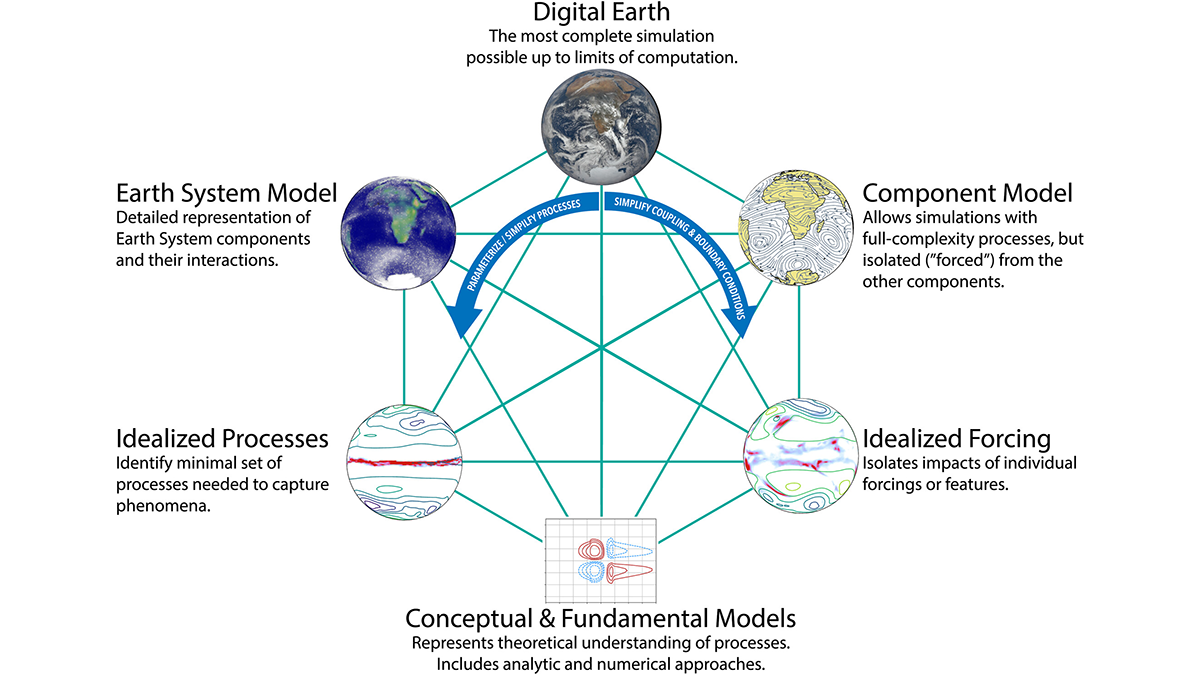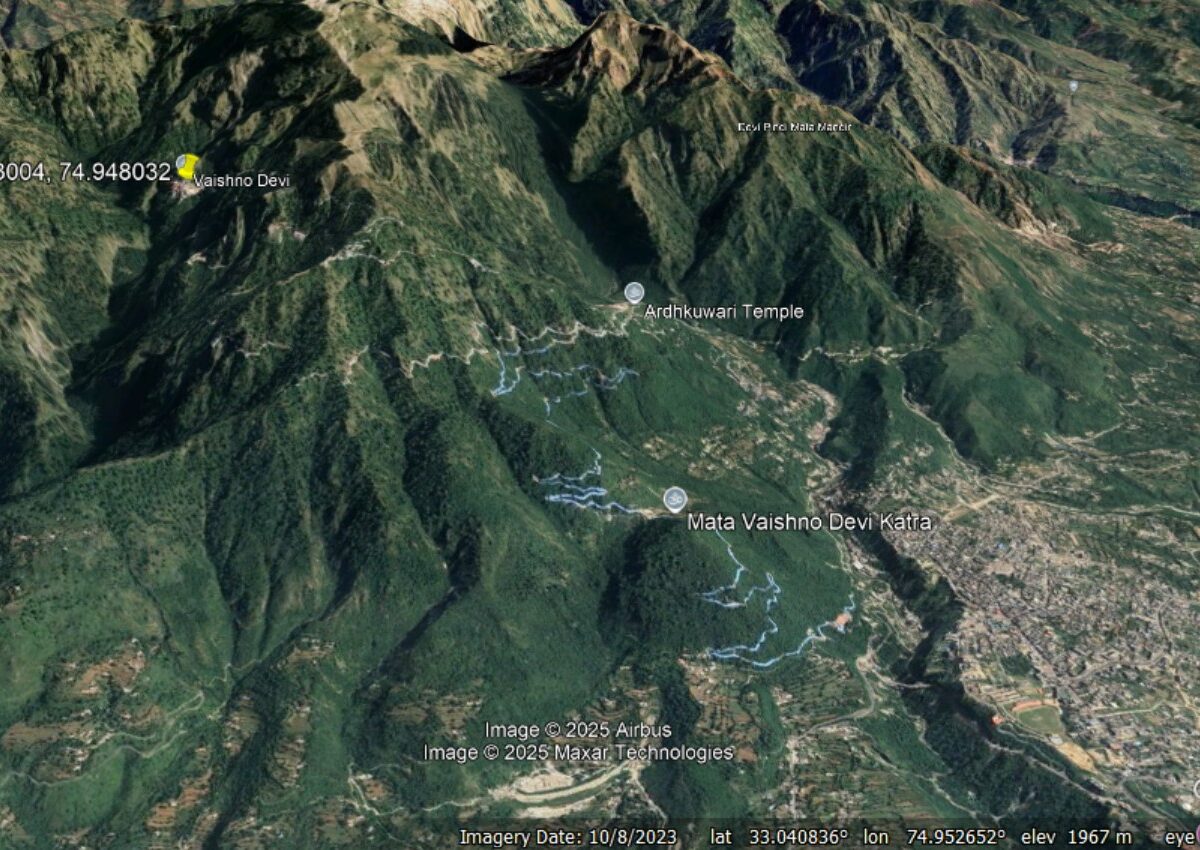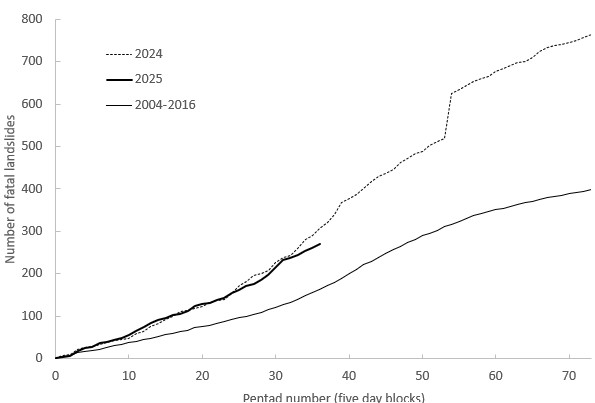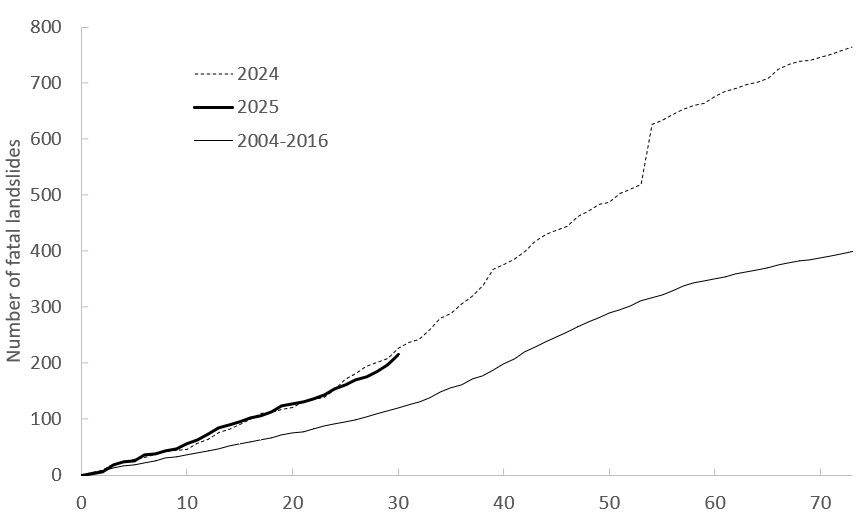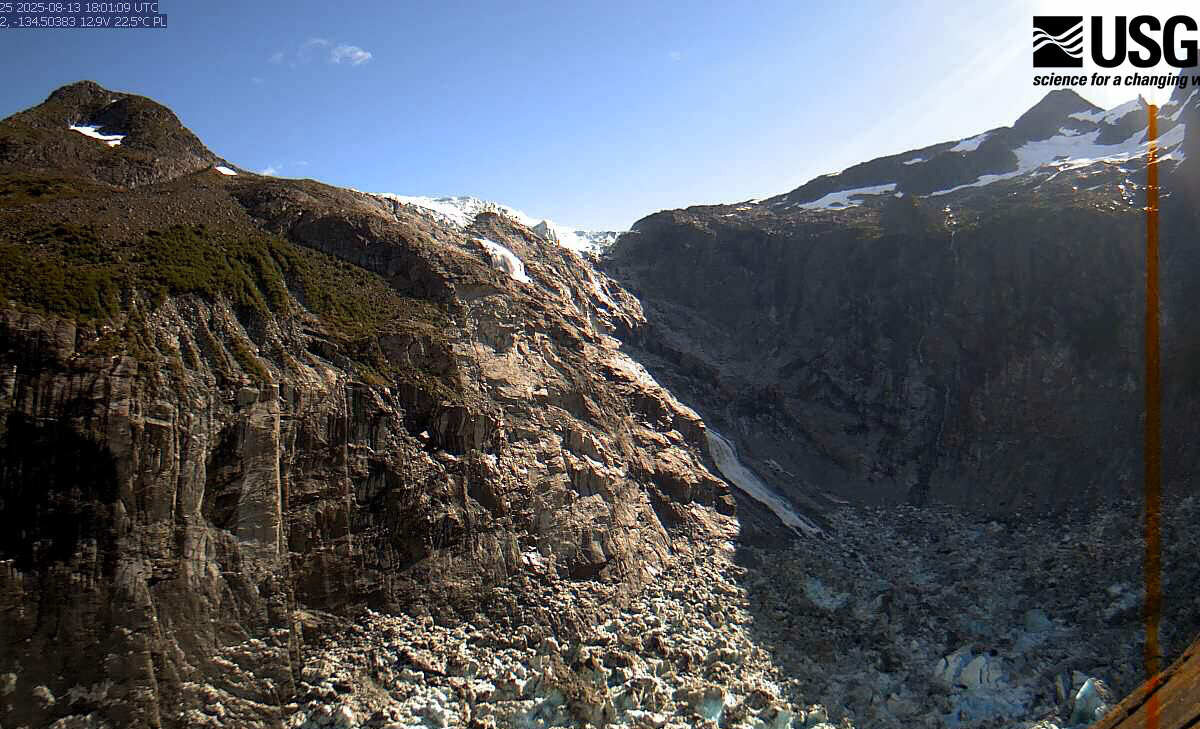As models that simulate Earth’s climate system become increasingly complex, the use of simpler and more flexible idealized models remains important for science and education.
Climate Change
The 26 August 2025 landslide on the Vaishno Devi pilgrimage route in India
On 26 August 2025, a landslide triggered by extraordinary rainfall killed at least 34 people and injured another 20 individuals. On 26 August 2025, extremely intense late monsoon rainfall struck parts of Jammu and Kashmir in northern India, triggering extensive flooding and landslides. Unfortunately, a significant landslide occurred on the route to the Vaishno Devi […]
Fatal landslides in June 2025
In June 2025, I recorded 51 fatal landslides worldwide, resulting in 479 fatalities. The number of fatal landslides is significantly above the long term mean. Yesterday, I provided an update on fatal landslides that occurred in May 2025. This post is a follow-up, providing the data for June. As always, allow me to remind you […]
Fatal landslides in May 2025
In May 2025, I recorded 66 fatal landslides worldwide, resulting in 313 fatalities. The number of fatal landslides is significantly above the long term mean. Somewhat later than planned, resulting from other workload challenges, this is my latest update on fatal landslides in 2025, covering the month of May. I hope to be able to […]
Public Speaks Out Against EPA Plan to Rescind Endangerment Finding
Advocates, scientists, doctors, members of Congress, kids, parents, and other individuals spoke out in a series of hearings last week to let the Environmental Protection Agency know how they feel about a potential sea change in climate and environmental policy: the proposed repeal of the 2009 Endangerment Finding.
Nitrogen Needs Could Be Limiting Nature’s Carbon Capacity
A new study suggests that past calculations of biological nitrogen fixation were overestimated by up to 66%—and that farms growing nitrogen-fixing crops may be filling in the gaps, for better or worse.
El queso en tiempos de la agricultura industrial y el cambio climático
Los pastizales y la dieta de las vacas están cambiando a medida que se calienta el clima, pero un experimento agrícola en Francia revela la importancia de proporcionar pastos a las vacas.
Glacial Lake Outburst Causes Record River Crest in Juneau
The Mendenhall River in Juneau, Alaska, reached a record-breaking crest Wednesday morning thanks to a glacial outburst flood (GLOF) from Suicide Basin. At 16.65 feet, the crest exceeded the previous record flood stage of 15.99 feet in 2024.
Glacier Monitoring from Space Is Crucial, and at Risk
A new community effort shows that Earth has lost 5% of its global glacier mass since 2000. The work highlights the necessity of spaceborne glacier observations and upcoming gaps in long-term monitoring.
California’s Getting an Earlier Start to Wildfire Season
Human-caused climate change has pushed the onset of fire season in the state to as much as 46 days earlier than it was 30 years ago.

